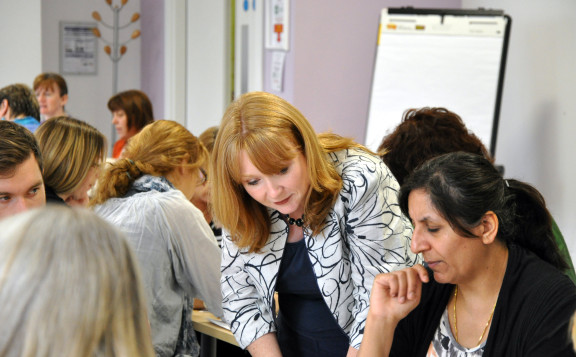Economic Evaluation of Services
Economic evaluation is increasingly required to demonstrate the value of services to vulnerable families, and to evidence how they are benefiting other partners within a local area. We work with local authorities and their partners to review the cost of support and establish the financial benefits of outcomes achieved – delivering a business case for investment.
Our services range from offering advice and guidance on how to set up a robust economic model, to delivering a full service economic evaluation including designing performance frameworks and supporting clients to set up systems to collate data.
As a starting point to every project, we establish a clear understanding of what you want to know and why, what decisions it will inform, and how robust the evidence base needs to be. From this, we tailor an approach that is proportionate to your needs and ensures we collect only what is required and useful. Our experience in this field means we have an in-depth understanding of the merits and limitations of different approaches, helping you to deploy resources where they make a difference.
Our clients have used economic evaluation (combined with our strategic and subject expertise ) to persuade partners of the importance of continued / new investment in family support services. Furthermore, the evidence has been used to make decisions on specific elements of service redesign, including practitioner case loads and the scope and duration of support.
All cases, effective and useful economic evaluation comes from a clear understanding of what you want to know, what decisions it will inform, and how much effort and resource you want to invest in.
Our team have been responsible for:
- Leading and authoring the National Evaluation of Family and Young Carers Pathfinders for DfE, a key study to inform the family intervention agenda.
- Evaluation of several Troubled Families and Think Family programmes
- Research for Action for Children providing evidence on how effective relationships with parents can lead to improved outcomes for children and young people (this research was widely cited in DCLG’s guide to working with Troubled Families).
- Research, evaluation, training and consultancy support to numerous local authorities on family intervention including West Sussex, Bournemouth, Surrey, Norfolk, East Sussex, Hertfordshire, Cambridgeshire, Berkshire and Birmingham, Sefton, Islington, Newham and Brent.
- Evaluation of a range of public health initiatives including an evaluation of a brief intervention for alcoholics delivered in an accident and emergency department.
- A range of economic evaluations on effective family intervention including an SROI of the M-PACT programme for Action on Addiction (substance misuse) and a FROI of family intervention programmes for the DfE.
We can work intensively with your teams to collect, collate and input data for families both before and after an intervention, ensuring accuracy and consistency of data. We can analyse and interpret the data collected and provide a written report on the findings. We can support further in developing a business case as required.
For further information please contact us.
Case Studies
-

Barnsley Metropolitan Borough Council – Motivational Conversations
Barnsley Borough Council were looking for a training provider that could help train their outreach workers in motivational conversations.Read More -

Brighton & Hove – Brain Development
Our one day working with Baby, Child and Teenage Brain Development has become a rolling program in Brighton and HoveRead More -

Unconscious Bias Training - Green School Trust Isleworth
We provided training and a day’s workshop for the senior leadership team across Green School Trust.Read More -

Torus Foundation Look aHEAD programme
Read MoreIt has been our pleasure to work with Torus Foundation again, this time on the Look aHEAD programme. which focuses on parental mental health and wellbeing and resilience of families and children in Liverpool.


